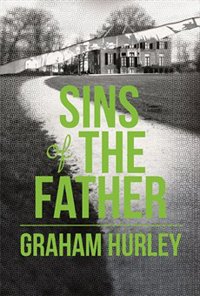In England’s West Country, DS Jimmy Suttle is called in to investigate the brutal murder of Rupert Moncrieff, a wealthy octagenarian living out his days in a house called Magharibi. Moncrieff was an ‘old Africa hand’, and among the tribal masks and mementos of his colonial days are a collection of razor-sharp machetes, one of which has been used to hack the old man to death.
There is no shortage of suspects. Who was the mysterious, smiling Senegalese man who stayed for several days in the Moncrieff household and then disappeared into thin air, courtesy of several of the old man’s £50 notes? What of Moncrieff’s adult children? Neil is acne-scarred, tongue-tied and chronically shy. His older sister Hilary is in retreat from a failed marriage. Both are kept financially afloat by demeaning hand-outs from their control freak father. And what about Erin, the beautiful masseuse, who visited Moncrieff on a regular basis?
Suttle and his journalist wife Lizzie are no longer together. Hurley fans will know that there was a bloodthirsty conclusion to the previous book, Touching Distance, but far from those dramatic events bringing the two closer together they are still estranged. Worse is the fact that their three-year-old daughter, Grace, is dead. How, and why, is revealed as Lizzie, having failed to write a book about the shoot-out at Suttle’s Devon cottage, is persuaded to write the full story about her daughter’s death.
As Lizzie picks her way through the minefield of truth and deception which surrounds Grace’s murder, committing emotional self-harm every step of the way, Suttle is led to investigate Moncrieff’s African connections. What happened during the Mau Mau uprising in Kenya during the late 1950s, when Moncrieff was attached to a documentary film team? How does Olly, the third Moncrieff child who is now a consular official with the British Embassy in Accra, fit into the picture? Back in Devon, the discovery of some very revealing hidden camera footage paints all of the inhabitants of Magharibi in a very different light, and the list of those who stood to gain by Moncrieff’s demise grows ever longer.
Hurley is certainly not an author averse to taking risks, as he showed when he killed off the eminently likable and thoroughly decent Joe Faraday, and replaced him with Jimmy Suttle, who is a very good cop, but not necessarily the man you would want as an in-law. Hurley’s gamble in Sins of the Father is to take two separate narratives and spin them along side-by-side, hoping that they have equal resonance. He almost pulls it off, but Lizzie’s search for answers about the death of Grace is by far the more gripping of the two strands. That’s not to say the hunt for Moncrieff’s killer is dull, but leaving aside the fact that the old man was a pretty repulsive specimen I only cared about who killed him on a procedural level, despite the gory details of his death and the killer’s later handiwork. By contrast, Lizzie’s agonising search for the back-story of her daughter’s death is beautifully described, but terribly harrowing. It is like the tale of Who Killed Cock Robin?, but in reverse motion. The final truth about the death of Grace – known only too well by Jimmy and Lizzie – is only revealed in the final pages of the book, and it comes like a punch in the gut.
Orion
Print/Kindle/iBook
£9.49
CFL Rating: 4 Stars










